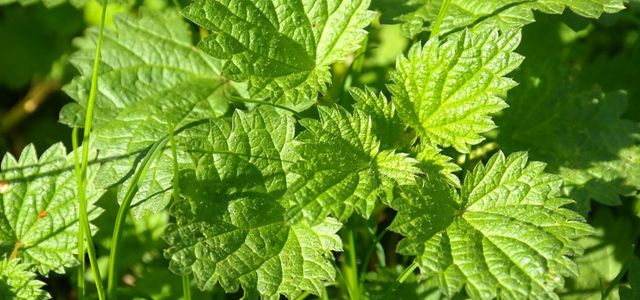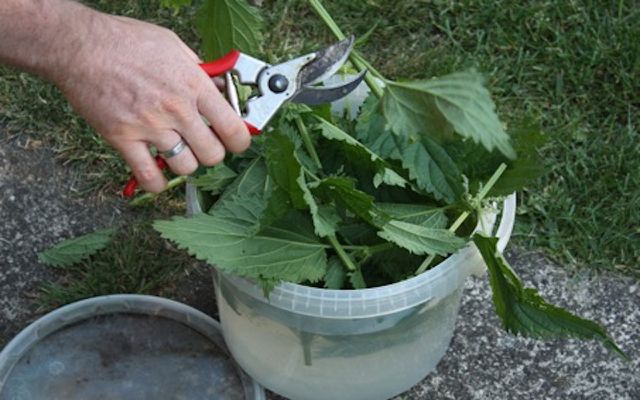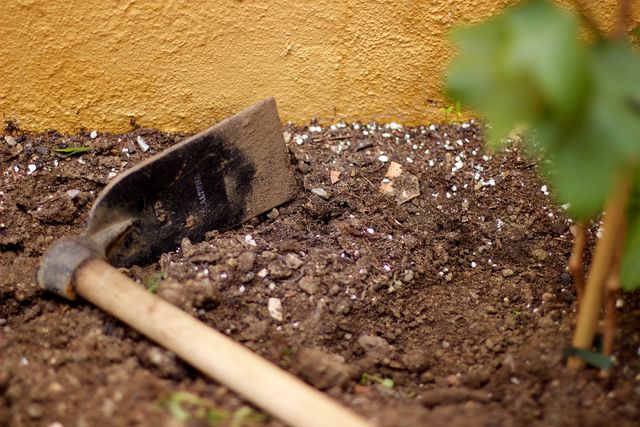
If in the garden also sprouts weeds, then help homemade weed killers. They are a good, ecological alternative to chemical agents. We will show you how to make your own weed killer from household resources.
Before you decide to keep your garden weed-free, it’s worth taking a look at wild herbology. That’s because many “weeds” in the garden are edible wild herbs. These include, for example, dandelion, nettles, goutweed or ribwort plantain. As salads, they provide varied and healthy nutrition in the kitchen.
Contents
Make your own weed killer from nettles

If you have a little more time, a nettle liquid manure as a weed killer is a very good, environmentally friendly means. The active ingredient against weeds is said to be the formic acid contained in the nettle. For the preparation of the natural herbicide needs some preparation and some lead time:
- Pick, protected with long clothing and gloves, about a large garbage bag full of nettles.
- Chop up the nettles and squeeze them into a large bucket until it is about three-quarters full.
- Fill the bucket with water.
- The mixture must now ferment, preferably in a sunny place. If during fermentation the smell becomes too unpleasant, you can add some primary rock flour. It neutralizes the unpleasant smell.
- Stir the mixture again and again.
When the fermentation process is finished after about two weeks, pour off the liquid manure. It is now highly concentrated.
Now you can apply the slurry to the leaves and stems of the weeds with the spray bottle. The leaves will burn due to the formic acid contained in the slurry. Again, you should avoid crops and be judicious with the dosage.
The weed killer from nettles is recommended. It works purely biologically and, unlike vinegar and salt solutions, it does not damage the soil.
Destroy weeds with hot water
Hot water also destroys weeds. Because it does not contain ingredients such as salt and vinegar, it may be used on sealed surfaces such as driveways and yards. However, it takes a lot of energy to heat water. Therefore, weigh whether you don’t want to save energy and water and simply weed yourself.
Mulching against weeds
A thick layer of bark mulch suppresses weed growth. You can simply chop up your shrub and tree trimmings and apply them to the beds; dried lawn clippings also work well. This is a great way to use your yard waste wisely and save yourself the hassle of weeding.
Destroy weeds in the lawn
Weeds in the lawn can become a problem if they push the lawn back and you end up with a “weedy meadow”. If this bothers you, you can try homemade lawn fertilizer as a first step. Often there is a lack of nutrients when weeds spread.
If this does not bring the desired success, you can dethatch your lawn. This mechanical way of weeding slashes the soil, removes plant parts and ensures good aeration of the soil.
You can read more about it here: Killing weeds in your lawn: Here’s how to do it without chemical killers
Weeding: the best way to kill weeds

Annoying, but unavoidable: The best way to get rid of unwelcome plants is weeding. Especially when roots remain in the ground, it doesn’t take long for the weeds to start growing again. Good tools to use are a garden rake and a small shovel. After rain, it is especially easy to remove weeds along with the roots, because the soil is nice and soft.

